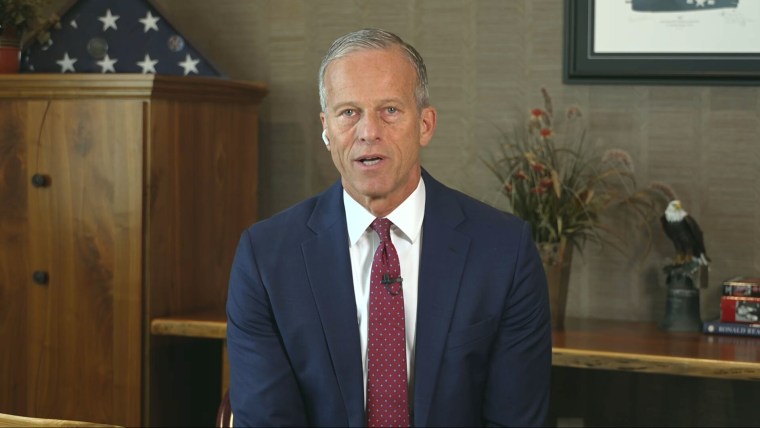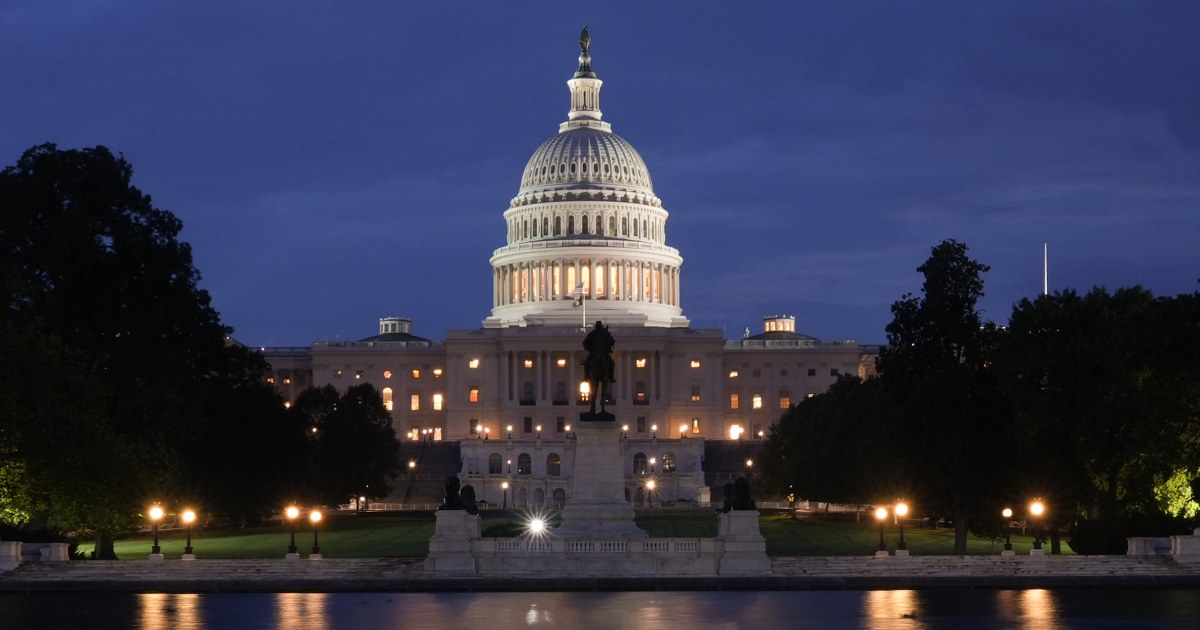WASHINGTON — President Donald Trump is scheduled to meet with the top four congressional leaders Monday in a high-stakes sit-down at the White House that could determine whether the federal government shuts down this week.
Funding is set to run out at 12:01 a.m. Wednesday unless Trump and leaders on Capitol Hill can reach an eleventh-hour agreement.
The Democratic leaders of the House and the Senate, Hakeem Jeffries and Chuck Schumer, both of New York, as well as their Republican counterparts, House Speaker Mike Johnson of Louisiana and Senate Majority Leader John Thune of South Dakota, are expected to attend.
The standoff represents a test of wills between the parties, with Republicans determined to flex their muscle after they won full control of the government last year, while Democrats face a restive base and see a rare opportunity to advance health care policy goals, like extending key Obamacare subsidies.
Six months ago, Democrats caved in to a GOP-written funding bill, but they insist that won’t happen again unless they have a say in the final legislative product.
Even though Republicans control the White House and both chambers of Congress, Democrats have leverage because it takes 60 votes to pass a bill through the Senate; the GOP has 53 seats.
Schumer made it clear Sunday on NBC’s “Meet the Press” that the only way to avoid a shutdown is for Republicans to get serious about negotiating with Democrats to win their votes, and he outlined demands on health care policy.
“We need the meeting,” Schumer said. “It’s a first step, but only a first step. We need a serious negotiation. Now, if the president at this meeting is going to rant and just yell at Democrats and talk about all his alleged grievances and say this, that and the other thing, we won’t get anything done.”
But Thune vowed that Republican leaders won’t negotiate on a short-term bill. Instead, he said, they’re willing to come to a compromise with Democrats on a longer-term government funding bill.
“What the Democrats have done here is take the federal government as a hostage — and for that matter, by extension, the American people — to try and get a whole laundry list of things that they want that special interest groups on the far left are pushing them to accomplish,” Thune said on “Meet the Press.”

Unless one party backs down or softens its demands, the U.S. government is on track for a shutdown in less than 48 hours. Senators will return to Washington on Monday evening with no clear plan, while the House is out of session.
If the government shuts down, none of the millions of federal workers in the United States would be paid, and hundreds of thousands of them would be furloughed. In recent days, White House officials had tried to allow military personnel to continue receiving pay during a shutdown, according to a source familiar with the discussions, but those efforts were unsuccessful. So military personnel wouldn’t be paid during a shutdown, either.
All federal workers, including military personnel, would be paid back after a shutdown ends, whether they were required to work during the closure or not.
A prolonged government shutdown could put significant strain on federal workers and military members who would forgo their paychecks. But it also could be dangerous for a U.S. economy that is showing signs of fragility. While the stock market continues to hit highs, inflation has remained stubbornly high; Trump’s tariffs are hurting U.S. farmers, small businesses and consumers; and recent college graduates face a tough job market.
Speaking to NBC News by phone Sunday, Trump warned that there could be a shutdown and reiterated an earlier threat that a closure could result in his administration’s mass firings of federal workers.
“There is a possibility, yeah,” he said of a shutdown. “And if there is, we are going to cut a lot of the people that … we’re able to cut on a permanent basis, and we will be doing that. I’d rather not do that.”
In addition to extending Obamacare funding, Democrats are demanding to roll back cuts and changes to Medicaid that were enacted in Trump’s sweeping domestic agenda law.
Trump has responded by accusing Democrats of trying to permit health care for undocumented immigrants, which they flatly dismiss as a lie.
“The problem we have with the shutdown is that Democrats want to do all health care for illegal immigrants … many of whom are criminal and that we are removing from our country,” Trump told NBC News. “We’re not going to do that.”
Monday’s meeting is a sign that neither party wants a shutdown — or that both sides are concerned about getting blamed in the event of one. Trump abruptly canceled a meeting with Democratic leaders last week, making a shutdown seem practically inevitable. And Republicans and Democrats have been pointing fingers at each other in recent days as the deadline ticks closer.
But the risk of a shutdown — which would be the first federal closure in Trump’s second term — remains extremely high. This month, the House passed a stopgap bill to avoid a shutdown that would extend government funding at current levels through Nov. 21. The House isn’t scheduled to be back in session until Oct. 7, one week after the shutdown deadline.
The Senate rejected both the House-passed extension and a separate Democratic plan that would permanently extend Obamacare subsidies set to expire at the end of the year and reverse Medicaid cuts enacted in Trump’s “big, beautiful bill.”
If a last-minute deal is unexpectedly reached, Johnson would need to call House members back to Washington on short notice to keep the government’s lights on. Although the House is out of session, Jeffries has asked House Democrats to return to Washington on Monday evening to show they are working to solve the impasse.
This article was published by NBC News on 2025-09-29 05:00:00
View Original Post





